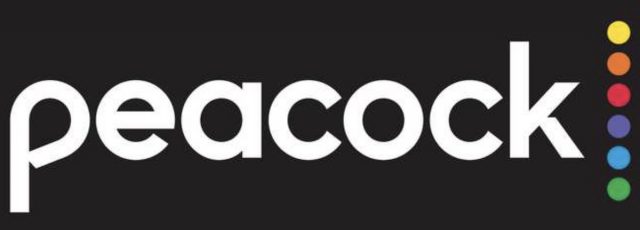
This Spectrum door-to-door salesperson tells a Bath, N.Y. customer the cable company bought the competition.
A Spectrum door-to-door sales representative has a new trick up his sleeve to win back customers who switched to a competitor: lie and tell them Spectrum bought out the competition and sooner or later customers will once again be dealing with the cable company.
Spectrum Rep: “To get you guys back on board with our service, we’re going to lock your price in for two years.”
A Bath, N.Y., customer of Empire Access, a competing fiber to the home provider offering service in the Southern Tier of New York: “I’m not interested.”
Spectrum Rep: “We just bought Empire, you know, so sooner or later you’re going to be with us.”
Customer: “So you’re going to raise up your rates?”
Spectrum Rep: “No, we’re just going to get everybody switched over, so whenever you’re ready. The official switchover is in March, so sooner or later you’ll be on board with us or you’ll be on satellite for internet. Right now we’re offering you a deal to get on board early.”
The “deal” was $50 a month for 100 Mbps internet, which is hardly a deal at all considering new Spectrum customers in competitive service areas can often sign up for 400 Mbps service for $29.99 a month for two years. More importantly, the salesperson openly lied to make a sale.
Empire Access marketing director Bob VanDelinder says Empire Access did not sell to Spectrum and has no plans to sell itself to anyone.
“Our company is locally owned and operated, and deeply rooted in the communities we serve,” VanDelinder said. “We can keep our customers based on our service, our price. We’re very competitive and play fair. We think that’s extremely important to play fair and keep it a level playing field and be honest to our customers.”

The customer captured most of the conversation on his Ring video doorbell and shared it with Empire Access. At least one other Empire Access customer said he experienced a similar encounter with the deceptive salesperson.
“The content of the video is not accurate and we’re investigating these apparent comments by the sales representative,” responds a Spectrum spokesperson.
Spectrum typically contracts out its door-to-door marketing to third party companies, with employees typically earning a commission or bonus based on each successful sign-up.
Empire Access is requesting customers who have experienced similar misleading claims to contact the company at: 1-800-338-3300.
Spectrum representative lies about the competition.
WENY-TV in Elmira, N.Y. reports on a Spectrum door-to-door salesperson using dirty tricks to try and fool customers to switch back to the cable operator. (2:32)


 Subscribe
Subscribe Comcast video customers will be the first to get Comcast/NBCUniversal’s new streaming platform, dubbed “Peacock,” featuring over 400 TV series and 600 movies, mostly from the library of Universal Studios, beginning this spring.
Comcast video customers will be the first to get Comcast/NBCUniversal’s new streaming platform, dubbed “Peacock,” featuring over 400 TV series and 600 movies, mostly from the library of Universal Studios, beginning this spring. Comcast and Charter Communications have begun to compete outside of their respective cable footprints, potentially competing directly head to head for your business, but only if you are a super-sized corporate client.
Comcast and Charter Communications have begun to compete outside of their respective cable footprints, potentially competing directly head to head for your business, but only if you are a super-sized corporate client.
 But neither company wants to end their comfortable fiefdoms in the residential marketplace by competing head to head for customers. Companies claim it would not be profitable to install redundant, competing networks, even though independent fiber to the home overbuilders have been doing so in several cities for years. It seems more likely cable operators are deeply concerned about threatening their traditional business model supplying services that face little competition. In the early years, that was cable television. Today it is broadband. Large swaths of the country remain underserved by telephone companies that have decided upgrading their deteriorating copper wire networks to supply residential fiber broadband service is not worth the investment, leaving most internet connectivity in the hands of a single local cable operator. Most cable companies have taken full advantage of this de facto monopoly by regularly raising prices despite the fact that the costs associated with providing internet service have been declining for years.
But neither company wants to end their comfortable fiefdoms in the residential marketplace by competing head to head for customers. Companies claim it would not be profitable to install redundant, competing networks, even though independent fiber to the home overbuilders have been doing so in several cities for years. It seems more likely cable operators are deeply concerned about threatening their traditional business model supplying services that face little competition. In the early years, that was cable television. Today it is broadband. Large swaths of the country remain underserved by telephone companies that have decided upgrading their deteriorating copper wire networks to supply residential fiber broadband service is not worth the investment, leaving most internet connectivity in the hands of a single local cable operator. Most cable companies have taken full advantage of this de facto monopoly by regularly raising prices despite the fact that the costs associated with providing internet service have been declining for years.
 “It’s very much a mobility strategy, with a secondary product of Home [5G], rather than us changing our overarching mobility deployment to try to accelerate Home at the expense of the overall 130 million customer base,” Dunne explained.
“It’s very much a mobility strategy, with a secondary product of Home [5G], rather than us changing our overarching mobility deployment to try to accelerate Home at the expense of the overall 130 million customer base,” Dunne explained. NEW YORK (Reuters) – Executives from Sprint Corp testified on Monday that the U.S. wireless carrier has struggled to improve its network, hindering its growth and underscoring the need to merge with larger rival T-Mobile US Inc.
NEW YORK (Reuters) – Executives from Sprint Corp testified on Monday that the U.S. wireless carrier has struggled to improve its network, hindering its growth and underscoring the need to merge with larger rival T-Mobile US Inc.
